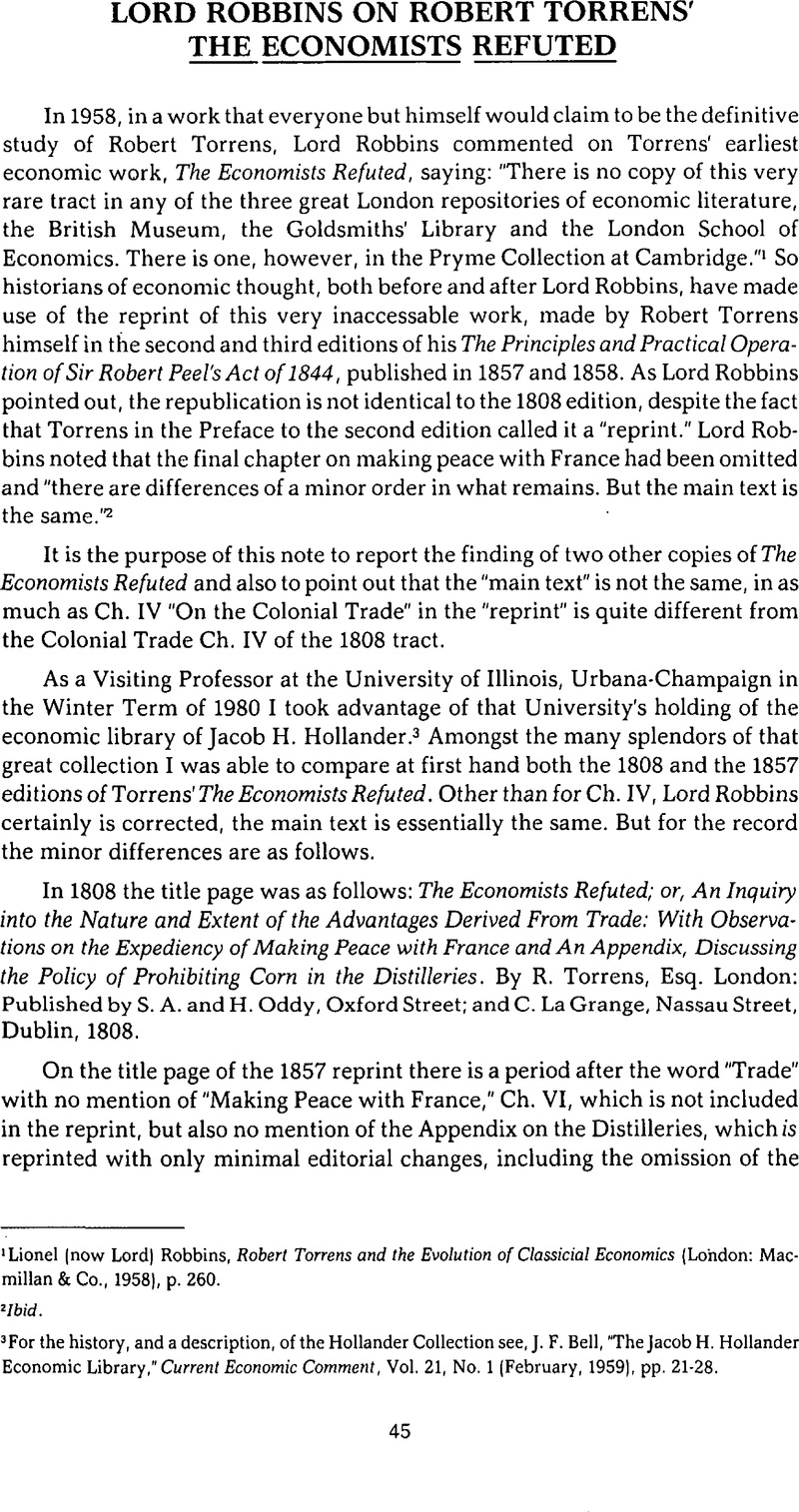Published online by Cambridge University Press: 11 June 2009

1 Robbins, Lionel, Robert Torrens and the Evolution of Classical Economics [London: Macmillan & Co., 1958], p. 260Google Scholar.
2 Ibid.
3 For the history, and a description, of the Hollander Collection see, Bell, J. F., “The Jacob H. Hollander Economic Library,” Current Economic Comment, Vol. 21, No. 1 (02, 1959), pp. 21–28Google Scholar.
4 Skeffington is not listed in the Dictionary of National Biography.
5 Robbins, , op. cit., p. viii.Google Scholar
6 Ibid., p. 283.
7 Ibid., p. 146n.
8 Ibid., p. 147.
9 Torrens, , A Paper on the Means of Reducing the Poors Rates (London: 1817), pp. 512, 518Google Scholar.
10 Ibid., p. 519.
11 Robbins, , op. cit., p. 146Google Scholar.
12 Torrens omitted only four paragraphs having to do with the benefits to England from being the entrepot for the colonial trade of Europe, and his analysis showing that the benefits to England from the monopoly of trade with the colonies comes only by impoverishing the colonies.
I once accused Torrens of plagiarism, in addition to self-plagiarism or cannibalization, and Denis O'Brien noted I had failed to give the page reference (History of Political Economy, Vol. 12, No. 3, Fall, 1980, pp. 400, 414Google Scholar). This may be an appropriate place to make amends. Lord Robbins in his study of Torrens (p. 285) noted that pages 295–303 of the Production of Wealth are extracts from Torrens' 1812 Essay on Money (pp. 4–13). Actually, the extracts in 1821 begin four pages earlier than Lord Robbins indicates, but after a few sentences from his 1812 Essay Torrens makes use of a four page extract from Lauderdale, Lord's Inquiry into the Nature and Origin of Public Wealth (1804, pp. 190–195)Google Scholar, to illustrate the advantages of money over barter. Of course, this is not indicated to the reader, anymore than is the fact that Torrens is making use of his 1812 Essay on Money.
13 Hollander Collection catalogue numbers 2437 and 2438, with the latter being bound with number 2454.
14 See, National Union Catalogue, Vol. 598, p. 40Google Scholar.
15 Letter, dated 05 3, 1980Google Scholar.
16 The 1808 tract is available on micro-film upon request to: Mr. Frederick Nash, N., Room 346, University of Illinois Library, Urbana, Illinois, 61806Google Scholar.